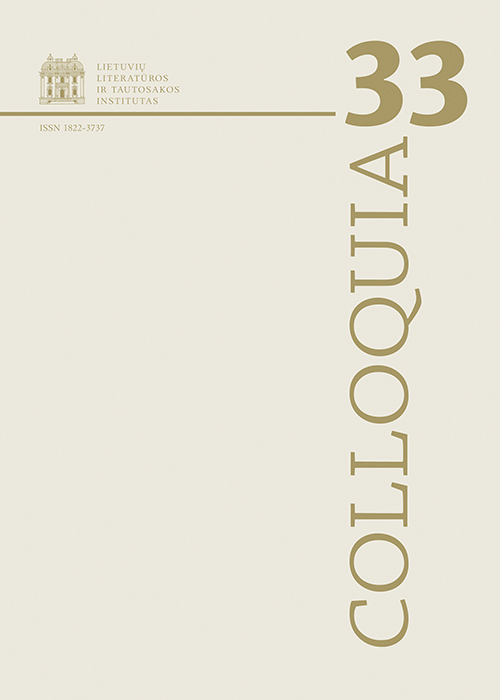War Experience: Shaping Memory and the Future (Algirdas Landsbergis and Kurt Vonnegut)
Abstract
Landsbergis’ and Vonnegut’s novels bear witness to the catastrophe of war in order to appeal to future generations. Vonnegut was a regular Allied soldier and prisoner of war, and his novel exposes the Western cynicism that justifies one crime with another. The novel announces the destruction of the values of human life and dignity, held so high in the West; these values serve only as a smokescreen for a war, and its hero cannot bear the peace and well-being that follow. For Landsbergis, a war refugee from occupied Lithuania, the situation is different. Because he did not identify with either side in the conflict, his testimony about his experience inspires the hope that it is possible to escape from the roles of both victim and perpetrator. Landsbergis’ literary and political activities directed him and his efforts toward one goal: to understand the reasons behind destructive historical upheavals and to find a way to alter the effects of historical catastrophes. His characters seek to overcome the boundaries of the holy-demonic realm of destruction, to restore lost possibilities for joy and harmonious existence. Landsbergis’ prose revolts against the tragic fate of the average person. He creates an image of a hero who, armed with the magical powers of art, rejects the fear of death and ruling power. Here, the human being is revealed as a hero who cancels out the destructive power of fate. Landsbergis ritualizes the path of preserving life – it becomes not only the death-fearing mortal’s chain of choices, but also an act of internal transformation. One individual’s experience and conquest of fear become an historical image. Its source is individual will and the author’s testimony to the value of life and human dignity. The miraculous nature of Landsbergis’ texts – the appearance of the godly and the demonic – is an effort to come to terms with the isolating nature of historical experience, to understand the destruction wrought by chaos as part of a divine plan.
Downloads
Most read articles by the same author(s)
- Imelda Vedrickaitė, Human Moral Becoming and the Surrealist Imagination: Saulius Tomas Kondrotas and Šarūnas Sauka , Colloquia: Vol. 39 (2017)
- Imelda Vedrickaitė, The Emergence of Personal Myth in the Essays of Dalia Staponkutė , Colloquia: Vol. 35 (2015)
- Imelda Vedrickaitė, Algirdo Jeronimo Landsbergio archyvas Kaune , Colloquia: Vol. 34 (2015)




